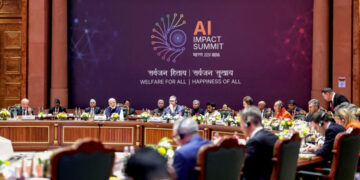By: Mehjabin Bhanu
Although there is a threat of food shortage all over the world, Bangladesh is very relieved at the moment. There is no food security threat. Bangladesh is well prepared to avoid any kind of food crisis. After Boro’s bumper crop, there was some initial apprehension about achieving Aman’s production targets due to the negative impact of non-rainfall. However, the government has already taken the initiative to import an additional 10 lakh metric tons of rice to avoid a possible crisis. In this, three and a half lakh metric tons of rice has arrived in the country, said several top officials of the Ministry of Agriculture and Commerce.
It is known that currently the most food insecure countries in the world are Congo, Ethiopia, Nigeria, Yemen, Afghanistan, Sudan, South Sudan, Somalia, Sri Lanka, Pakistan, Haiti, Niger, Kenya, Malawi, Burkina Faso, Zimbabwe, Guatemala, Honduras, African Republic, Chad, Madagascar and Mali. Many people in these countries will suffer from food insecurity. 70 percent of these people will be acutely food insecure. This will increase poverty all over the world.
The objectives of the current food policy of the government formulated in 1988 are to achieve self-sufficiency in food by ensuring the production of necessary food, encouraging farmers to produce more food, purchasing crops from farmers at subsidized prices or at incentive prices during harvest, ensuring proper supply and distribution system of the crops produced in the country, Facilitating access to food for low-income people, keeping food prices in line with the cost of production of crops and the purchasing power of the people, proper storage of food produced or collected from other sources, establishing ‘food stocking’ systems or emergency food storage for disaster situations, food Price control, strengthening of food management systems and gradual reduction of food subsidies etc. To achieve these, 32 guidelines are prepared with 20 goals and objectives in mind. Food policies sometimes also suggest taking reliable activities to achieve goals. The first goal of the policy is to gradually reduce food insecurity and increase food intake per capita to 16 ounces per day.
Meanwhile, observing the current global situation, the World Bank said in a recently published report – Bangladesh is not at risk with food security even though the level of food security risk has increased terribly in almost all countries of the world in the current global context. Among South Asian countries, Afghanistan, Pakistan and Sri Lanka are facing major food security risks. But Bangladesh is not in this risk. But there is a danger of increasing the rate of food inflation in Bangladesh.
According to the report, the export of rice from Bangladesh has been stopped to ensure food security. The government has implemented this decision from last June 29. It will remain in force till December 31. The World Bank has warned that global food shortages will worsen in the future.
According to the World Bank report, about 50 percent of the world’s urea fertilizer is supplied from Europe. On the one hand, the production of fertilizers is being hindered due to gas shortage. In this, the price of fertilizers and other agricultural inputs is also increasing. As a result, the cost of agricultural production will increase. It will also increase the price of agricultural products. However, in the last three weeks, the price of agricultural products has decreased by 3 percent in the international market. But the World Bank has warned that its prices may rise again in the future.
The report also says that in some countries, rising inflation may put food beyond the reach of the poor. Food inflation is now above 5 percent in 88 percent of low-income countries, 91 percent of middle-income countries, and 93 percent of high-income countries. The World Bank has expressed fear that the inflation rate in these countries may rise to double digits. Already in many countries this rate has crossed double digits.
The 10 countries most at risk of food inflation are — Zimbabwe at 68 percent, Lebanon at 36 percent, Iran at 32 percent, Sri Lanka at 22 percent, Hungary at 18 percent, Colombia at 15 percent, Djibouti at 14 percent, Rwanda at 14 percent, and Burkina Faso at 10 percent.
Those concerned say that along with food security, the adequacy of fish, meat, eggs, milk and vegetables is necessary for nutritional security. And for nutritional security, proper storage and supply of the mentioned products is a big need. If the production of vegetables, fish and rice in Bangladesh has been increased to the level, if proper preservation system can be developed, Bangladesh can become a food exporting country by meeting its own needs. Intake of other foods besides rice should be increased for nutritional security. At present, the food consumption picture of Bangladesh has only rice adequacy. 3.500 grams of rice per person per day is required. In that place, people of Bangladesh eat 400 to 450 grams of rice on an average.
Bangladesh is now the third country in the world in rice production. After China and India, Bangladesh was ranked third in the last financial year, behind Indonesia. Agricultural land is decreasing every day in the country of about 18 crore people. There is a big contribution of our farmers for the continuous success of our main product rice production. Along with this, the policy support provided by the government to agricultural scientists is also playing an important role.
If you want to know about this, the Minister of Agriculture said. Abdur Razzak said, “There is no shortage of food grains in the country. Although there is a fear of food crisis all over the world, Bangladesh is in a place of comfort in terms of food security.
Road Transport and Bridges Minister Obaidul Quader gave the same information. He said, ‘Even if there is a food crisis in the whole world next year, Bangladesh is in a safe and comfortable place. Because, all kinds of measures have been taken by the government to keep Bangladesh free from food risk.
The writer is a female school teacher in Bangladesh






